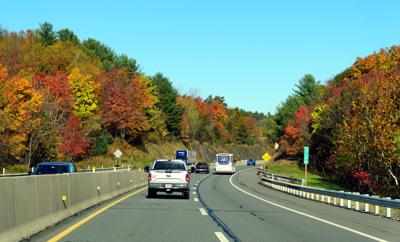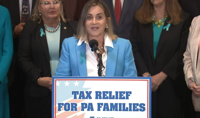(The Center Square) – Pennsylvania needs to adopt additional road safety laws, including in seat belt enforcement and teen driving restrictions, the organization Advocates for Highway and Auto Safety urged lawmakers in its 18th Annual Roadmap of State Highway Safety Laws report it released this month.
Pennsylvania is among 30 states that currently have a “yellow” rating, “indicating that improvement is needed because of gaps in Advocates’ recommended optimal laws.”
Eight states have a green rating, including Delaware, Maine, New York and Rhode Island, showing “significant advancement” toward meeting the Advocates’ recommended laws. Twelve states, including New Hampshire and Vermont, have a red rating, indicating they “fall dangerously behind” in adopting Advocates’ recommendations.
Tara Gill, Advocates’ senior director advocacy and state legislation, said Pennsylvania should strengthen vehicle occupant protection through enhancing enforcement of adults’ use of seat belts and requiring all motorcycle riders to wear helmets.
The Keystone State currently has secondary, not primary, enforcement for adults’ use of seat belts, which means that law enforcement officials can only issue tickets if they observe a vehicle occupant violating a primary enforcement law. With primary enforcement, an officer would be able to stop a vehicle as soon as they observe an unbelted driver or passenger.
Pennsylvania also does not require motorcyclists to wear helmets if they are at least 21 years old and have either two years of riding experience or have completed a state-approved motorcycle safety course. The state repealed its universal 1968 mandatory helmet law in 2003.
“It’s incredibly difficult to get a motorcycle helmet requirement back on the books after it’s been repealed, but it’s one of the basic laws we recommend,” Gill said.
Traumatic brain injuries are among the common injuries that occur in motorcycle crashes that can be significantly reduced if motorcyclists wear a helmet, she said.
“I think there’s a perception that an unhelmeted driver is only hurting themselves if they crash, but that’s not the reality,” Gill said. “Any time there’s a loss of life or debilitating injuries are suffered, there are ripple effects throughout families and communities, whether they be financial or caretaking or the loss of productive member of the community.”
Advocates has also called on Pennsylvania to prohibit throughout its graduated driver licensing program all use of cellular devices, except for in emergencies, and to mandate the installation of ignition interlock devices for all drivers convicted of drunken driving.
“[The ignition interlock device is] a fantastic technology that prevents recidivism, but it also allows the offender to get to work, drive their kids to school and continue to be able to operate a vehicle, unlike a license suspension,” Gill said. “They just can’t be operating the vehicle after having drunk alcohol.”
Pennsylvania suffered 1,059 fatalities due to motor vehicle crashes in 2019, according to a Pennsylvania Department of Transportation report. About 83% of crashes involving fatalities occurred under no adverse weather conditions. The months that saw the most fatalities were June (10.5%), September (9.4%) and April (9.8%) while the most crashes occurred in October (9.5%), December (9.4%) and January (9.0%).









